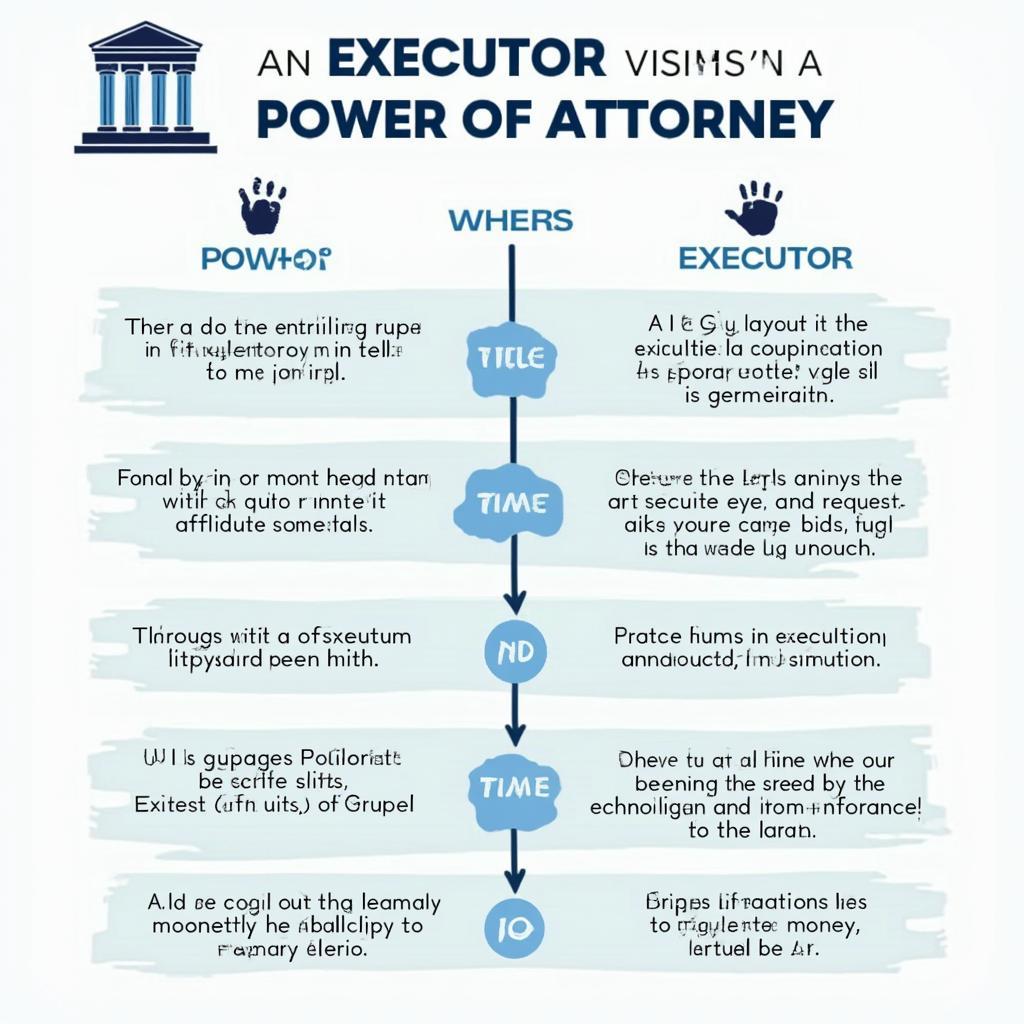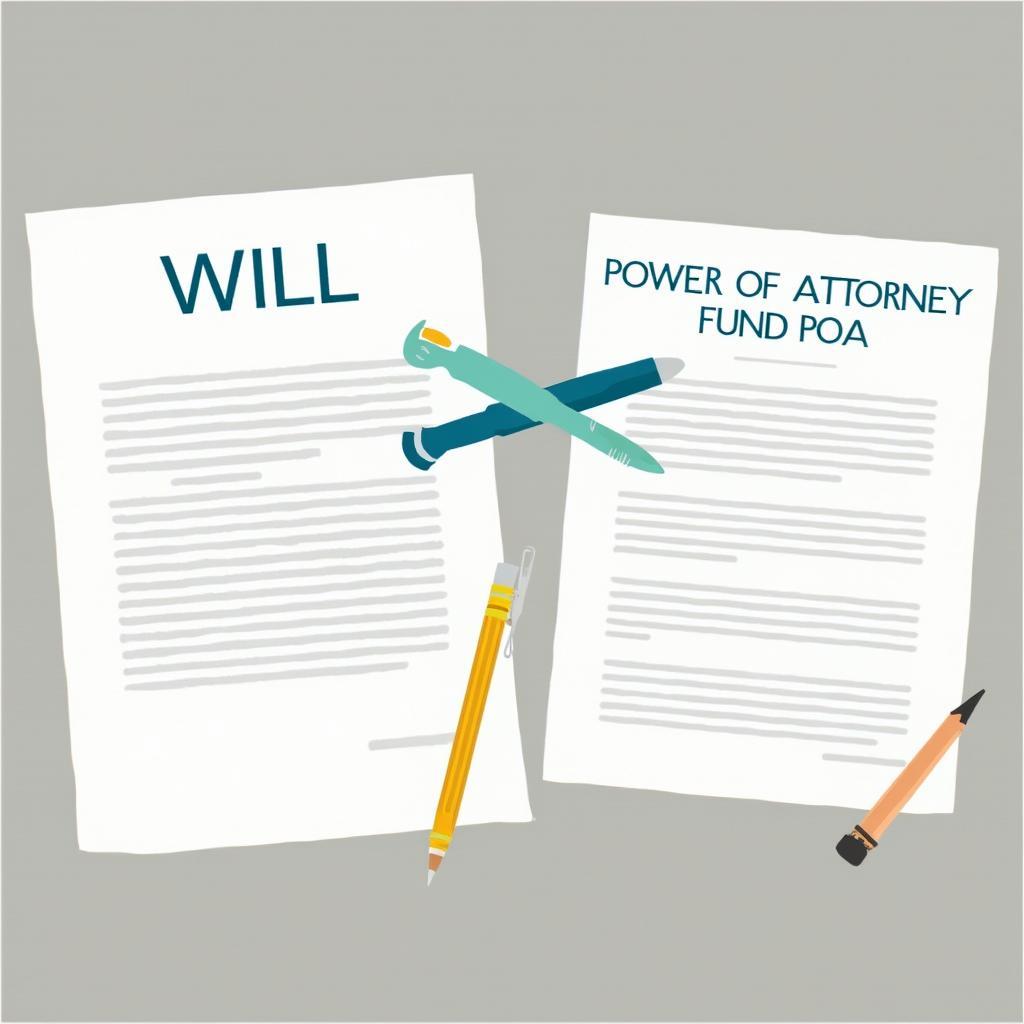
Does Power of Attorney Override an Executor?
A Power of Attorney (POA) and the role of an Executor are distinct legal concepts that often intersect, particularly in estate planning. While a POA grants authority to act on someone’s behalf during their lifetime, an Executor manages their estate after death. Understanding the interplay between these two roles is crucial for ensuring a smooth transition of assets and avoiding potential conflicts. This article clarifies the relationship between a POA and an Executor, addressing the common question: does a Power of Attorney override an Executor?
Similar to does the power of attorney end when someone dies, the authority granted under a Power of Attorney terminates upon the death of the principal, the individual who grants the power. This means the agent, the person appointed under the POA, can no longer act on the principal’s behalf. Upon death, the Executor named in the will takes over the responsibility of managing the deceased’s estate. This includes distributing assets, paying debts, and filing necessary legal documents. Therefore, the Executor’s authority supersedes any remaining power a POA might have seemed to hold.
Understanding the Role of a Power of Attorney
A Power of Attorney is a legal document that authorizes an agent to act on behalf of another person, called the principal. This authority can be broad, encompassing financial decisions, healthcare choices, and legal matters, or it can be limited to specific tasks. POAs are often used when someone becomes incapacitated and can no longer manage their own affairs. There are different types of POAs, such as durable POA, which remains effective even if the principal becomes mentally incompetent, and non-durable POA, which terminates upon the principal’s incapacity.
Types of Power of Attorney
Understanding the different types of POAs is essential for comprehending their limitations. A Durable Power of Attorney remains in effect even if the principal loses mental capacity. A Non-Durable Power of Attorney terminates if the principal becomes incapacitated. A Springing Power of Attorney only becomes effective upon the occurrence of a specified event, often the principal’s incapacity.
The Executor’s Role After Death
The Executor is named in the will and is responsible for carrying out the wishes of the deceased. This includes gathering and inventorying assets, paying debts and taxes, and distributing the remaining estate according to the will’s instructions. The Executor’s authority begins immediately upon the death of the testator (the person who made the will).
Executor vs. Power of Attorney: Key Differences
The primary difference lies in the timing of their authority. A POA is active during the principal’s lifetime, while the Executor’s authority begins after death. Another crucial difference is the source of their authority. The POA derives its power from the principal, while the Executor’s authority comes from the court. The Executor’s actions are overseen by the probate court, which ensures they are acting in the best interest of the estate.
 Executor vs. Power of Attorney Comparison
Executor vs. Power of Attorney Comparison
Can a Power of Attorney Override a Will?
The short answer is no. A Power of Attorney cannot override a will. A will outlines the deceased’s wishes for the distribution of their estate. The POA ceases to be effective upon death. Therefore, any actions taken by an agent under a POA after the principal’s death are invalid. The Executor is bound by the terms of the will and must follow its instructions.
Just like the information in does power of attorney end when the person dies, this emphasizes the importance of a valid and updated will. A clear and comprehensive will minimizes the potential for disputes and ensures that the deceased’s wishes are respected.
 Power of Attorney and Will Interaction
Power of Attorney and Will Interaction
What Happens if the Agent and Executor are the Same Person?
It’s not uncommon for the same person to be named both the agent under a POA and the Executor of the will. In this scenario, the individual acts as the agent during the principal’s lifetime and transitions to the role of Executor upon death. This simplifies the process and can ensure continuity in managing the principal’s affairs. However, it’s important to remember that even in this situation, the authority shifts from the POA to the will upon death.
Seeking Legal Counsel
Navigating the complexities of estate planning can be challenging. Consulting with a qualified estate planning attorney is highly recommended. An attorney can provide personalized guidance tailored to your specific circumstances and help you create a comprehensive estate plan that protects your interests and those of your loved ones. They can also advise you on the appropriate use of POAs and ensure your will is legally sound.
As Lawyer Nguyen Thi Minh Anh, a specialist in estate planning at a reputable Ho Chi Minh City firm, states, “Clearly defining the roles of a Power of Attorney and an Executor is essential to avoid potential conflicts and ensure a smooth estate administration process.”
 Consultation with an Estate Planning Attorney
Consultation with an Estate Planning Attorney
Conclusion
Understanding the distinction between a Power of Attorney and an Executor is crucial for effective estate planning. While a POA grants authority during life, the Executor takes over after death. The Executor’s authority, derived from the will, overrides any remaining power of the POA. Therefore, a Power of Attorney does not override an Executor. Consulting with a legal professional is recommended to ensure your estate plan addresses your individual needs and avoids potential conflicts. This proactive approach will provide peace of mind for you and your loved ones, ensuring your wishes are respected. If you have questions or concerns, seeking legal counsel is crucial for navigating the intricacies of estate planning and ensuring a seamless transition of assets.
As Attorney Le Van Trung, specializing in probate law in Hanoi, points out, “A well-drafted will, combined with a carefully considered Power of Attorney, can significantly simplify the estate administration process and minimize potential disputes.” For further information, refer to can power of attorney override a will.
FAQ
-
Does a Power of Attorney expire? Yes, a Power of Attorney expires upon the death of the principal or as specified in the document.
-
Who appoints an Executor? The testator appoints the Executor in their will.
-
Can an Executor be removed? Yes, an Executor can be removed by the court for reasons such as misconduct or failure to fulfill their duties.
-
What happens if there is no will? If there is no will, the estate is distributed according to state intestacy laws.
-
Can I change my will after creating it? Yes, you can modify or revoke your will at any time as long as you are mentally competent.
-
What is probate? Probate is the legal process of validating a will and administering the estate of a deceased person.
-
Do I need a Power of Attorney if I have a will? A Power of Attorney and a will serve different purposes. While a will dictates how your assets are distributed after your death, a POA allows someone to manage your affairs while you are alive. Having both can be beneficial for comprehensive estate planning.




